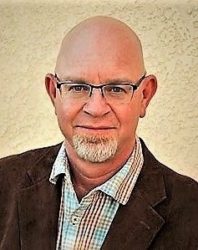 Scott Brassart
Scott Brassart
Last month, we discussed how to work step 1 of the 12 steps, along with the benefits of working that step. This month, our focus logically moves to step 2.
Step 2 reads as follows:
Came to believe that a power greater than ourselves could restore us to sanity.
Step 1 explores the depth and consequences of our addiction, helping us break through the denial that justifies and supports our addictive behaviors. Step 2 is designed to prepare us for the long-term solution to come (in steps 3 through 12). In other words, step 2 introduces the general nature of the solution: that we, as addicts, must accept outside help if we wish to establish and maintain lasting sobriety.
Step 1 asks:
- Was my behavior out of control, causing negative consequences, and, if so, did I continue with it anyway?
- Did I try and fail to stop my addictive behavior?
- Did those attempts and failures happen on an ongoing basis?
 If the answer to even one of these questions is yes, then the solution to our problem will have to involve something beyond ourselves, because OUR BEST THINKING DID NOT KEEP US SOBER. And that realization leads to step 2 – understanding that we need outside help to overcome our addiction.
If the answer to even one of these questions is yes, then the solution to our problem will have to involve something beyond ourselves, because OUR BEST THINKING DID NOT KEEP US SOBER. And that realization leads to step 2 – understanding that we need outside help to overcome our addiction.
Restore Me to Sanity?
Some addicts struggle with the closing words of step 2, “restore us to sanity,” as this phrase suggests we are insane, and we rarely think we’re crazy. If someone else was engaging in the same behaviors as us, sure, that person would be totally nuts, but we somehow think that it’s OK for us to behave this way because…
When we find ourselves struggling with the “being crazy” concept, it helps to understand the addict’s definition of insanity: doing the same things over and over but expecting different results. In other words, the last hundred times we engaged in our addiction we did so whether we wanted to or not, we couldn’t stop once we started, and we did it despite the risk (or actuality) of negative life consequences. Yet somehow, we think that this time will be different.
Does that sound familiar?
Power Greater Than Myself?
Many of us also struggle with the words “power greater than ourselves,” interpreting that language to mean “God” or “organized religion.” However, this is not what that phrase means. Instead, these words typically refer to a mix of things like 12-step recovery groups, supportive friends and family, therapists, therapy groups, etc. For some of us, God and religion enter the mix; for others, not so much.
Ultimately, the definition of “power greater than ourselves” depends as much on our personal belief system as anything else. So this step is less about God/religion and more about admitting that help is needed. Step 2 is a realization and an admission that we cannot establish lasting sobriety and recovery on our own. We need help.
What To Do…
The easiest way to work step 2 is to actually begin accepting help. Sometimes this starts with a want ad – a written description of the type of assistance we are seeking.
Sought: A power greater than myself to help me stay sober. Must be available for consultation and care about my health and well-being. Must understand the nature of my addiction. Must be nonjudgmental about my past.
Once we have a decent idea of the help we are looking for, we can begin the process of accepting that assistance (step 3). Typically, we find that help is readily available in residential addiction treatment, online support groups, addiction-focused individual and group therapy, and 12-step recovery programs. In the longer-term, 12-step recovery can be especially helpful. Typically, it takes very little time to realize that accepting this type of help (help from a power greater than ourselves) is a very good idea because doing so makes staying sober much, much easier.
In next month’s post, we will continue our discussion of the 12 steps with an examination of step 3.
* * * * * * * * * *
If you or someone you care about is struggling with sex or porn addiction, help is available. For porn addicts, Seeking Integrity offers a low-cost online workgroup series. Click HERE for information. We offer a similar workgroup series for sex addicts. Click HERE for information.
